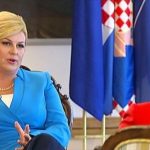The upcoming visit by Serbian President to Zagreb could bring the country a step closer to the EU.
The EU officials working on the enlargement process and relations with the countries of the Western Balkans have welcomed the announced visit of Serbian President Aleksandar Vučić to Zagreb. This visit is also important because of the numerous events announced by the EU this year in connection with the enlargement process in the Western Balkans. That is why the meetings that Vučić will have in Zagreb with Croatian President Kolinda Grabar-Kitarović and Prime Minister Andrej Plenković will be important for resolving open bilateral issues, such as the rights of national minorities, the question of missing persons, cultural cooperation and the border demarcation issues, reports Jutarnji List on February 3, 2018.
This is all necessary for Serbia to take advantage of the opportunity offered by the EU with regards to the possible membership. As far as Croatia is concerned, it is expected to prove that it is genuinely committed to helping its neighbours on their path to membership in the Union.
Vučić will visit Zagreb on 12 and 13 February, a week after the European Commission will have published the enlargement strategy for the Western Balkans. This plan will call on all countries that want to join the EU to resolve disputes with their neighbours before the accession, including border issues because the EU does not want to import these problems. The strategy will also speak about the necessity to do more to solve the issue of the missing persons during the 1990s war, to overcome past differences and to heal the wounds that are present 25 years after the war.
Serbia will be offered a time frame to become an EU member by 2025. In order to achieve this goal, negotiations on all chapters should be concluded by 2023. For the toughest chapter, the one dealing with the judiciary and fundamental rights, in the next year Serbia will have to meet 50 transitional benchmarks, some of them related to Croatia’s demands. Only when they are fulfilled will the EU set the criteria for the closing of this chapter. This is the hardest chapter for Serbia, as well as for all other candidates. Of course, Serbia should also urgently normalize relations with Kosovo through a legally binding agreement with the state.
A week after his meeting in Zagreb, Vučić will host European Commission President Jean-Claude Juncker, who will visit the countries of the Western Balkans in late February to convey a personal message of encouragement for their European perspective.
Diplomats in Brussels consider this to be a favourable moment to resolve open issues between Croatia and Serbia, which is helped by the fact that both ruling parties, HDZ in Croatia and Vučić’s Serbian Progressive Party, are part of the same European political family. Some officials even say there has been a visible change in Croatia’s behaviour because, for example, HDZ’s members of the European Parliament have submitted a much smaller number of objections to Serbia since Vučić’s party gained observer status in the European People’s Party.
The issue of the missing persons is something that the European Union will focus more on in the future, primarily due to the pressure from the region itself, but more by NGOs than by the states. According to the data, in Croatia, there are 1,624 missing persons, of which 60 percent are Croats, and 40 percent are Serbs. NGOs also warn about constant abuse and distortions of the number of victims and missing persons in the region. The only way to prevent this is to discover the real truth by identifying all the victims. That goal will be supported by the European Union through what it calls “transitional justice.”
Translated from Jutarnji List.









